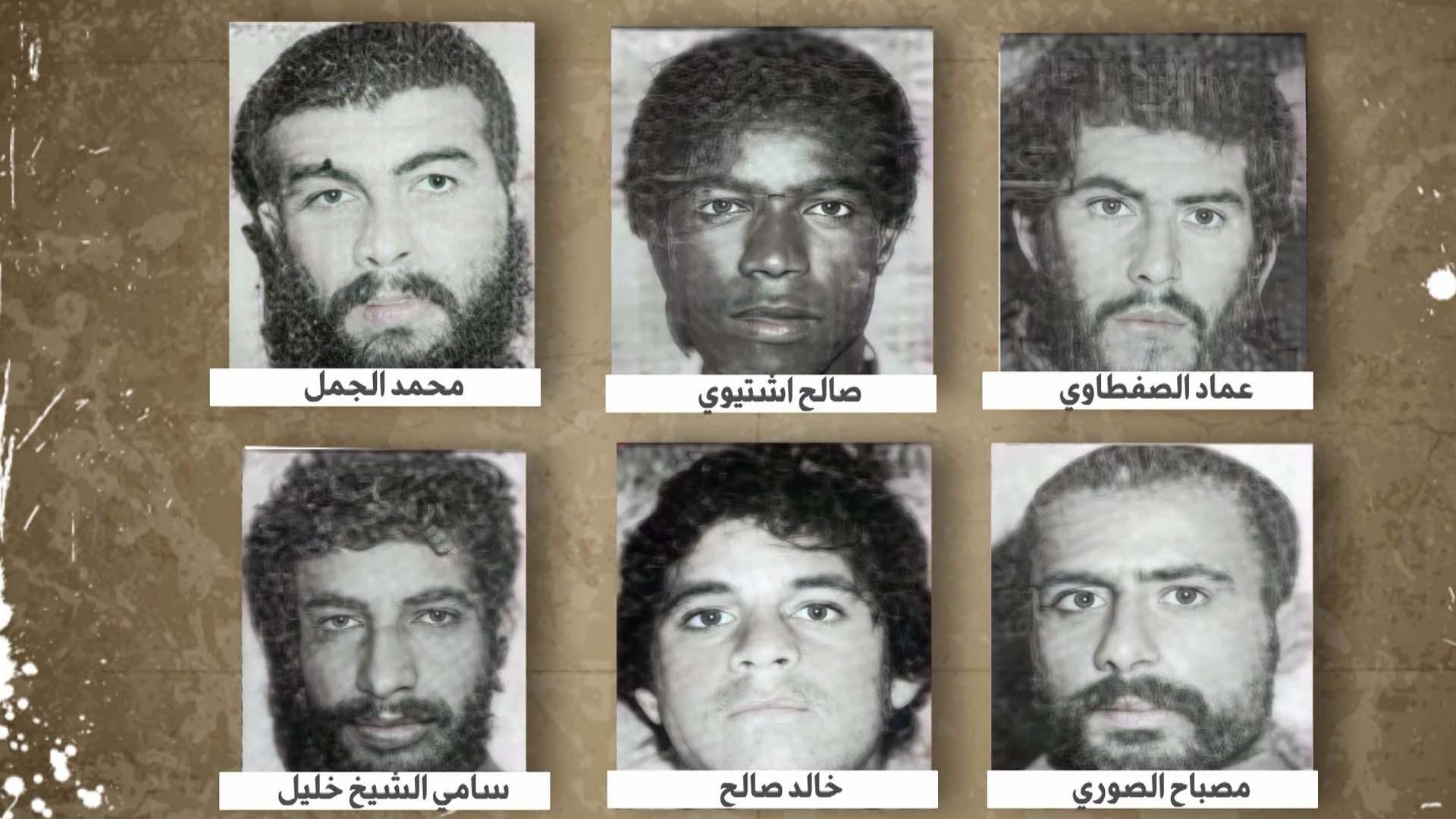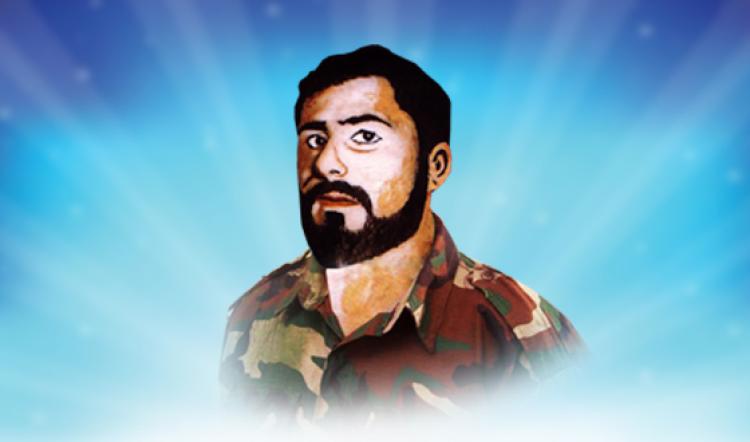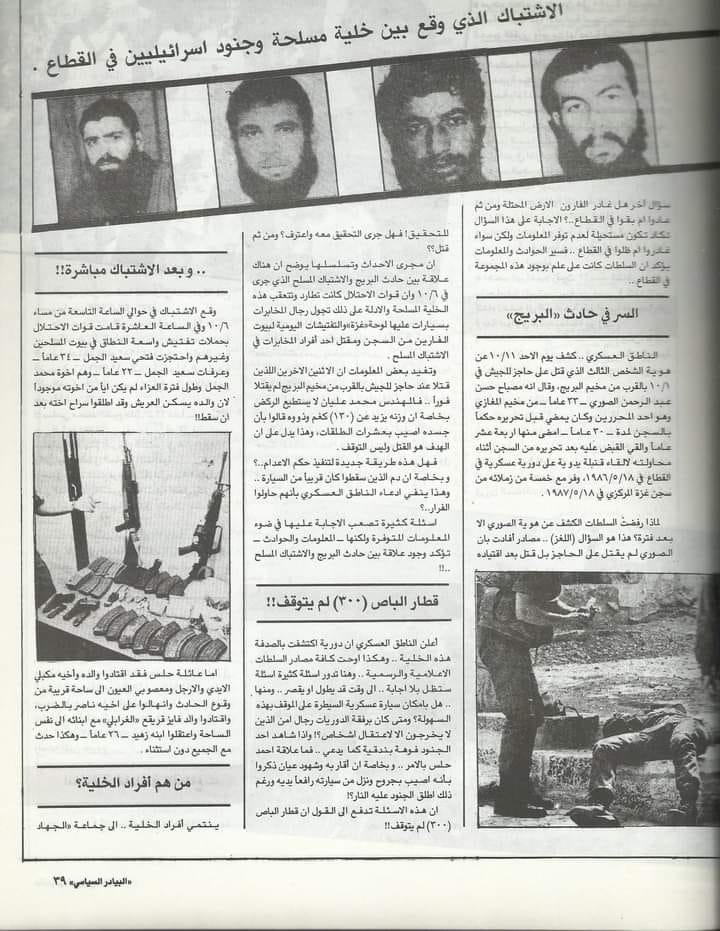
October 2023 marks the 36th anniversary of the martyrdom of Misbah al-Suri, the leader of a daring escape from the Israeli occupation’s Gaza Central Prison in May 1987, one of the sparks of the great popular Intifada of 1987. Al-Suri was one of the leaders of the Palestinian Islamic Jihad Movement and one of its founders, and his martyrdom — and the battle of Shujaiya days later on 6 October — is commemorated as the founding date of the Palestinian Islamic Jihad Movement.
Al-Suri, born in al-Maghazi refugee camp in 1954, to a family of Palestinian refugees expelled from Ashdod in the 1947-48 Nakba, the Zionist colonization of Palestine, Living through severe poverty and poor housing and the 1967 assault on and occupation of Gaza, including th bombing of his refugee camp, he joined the Palestinian resistance from a young age. As a member of the Palestine Liberation Front, he threw a bomb at an occupation army force in Jabalia at the age of 16; he was hit by bullets in several areas of his body, arrested and sentenced to life imprisonment. He was held in solitary confinement for two months after his last attempt to liberate himself was discovered. In 1985, he was one of the 1150 Palestinian prisoners released in the prisoner exchange conducted by the Popular Front for the Liberation of Palestine – General Command. (Others included Kozo Okamoto of the Japanese Red Army; Sheikh Ahmad Yassin, later the spiritual leader of Hamas; and Ziad Nakhaleh, later to become the General Secretary of the Palestinian Islamic Jihad Movement.)

During his time in detention, Al-Suri participated in the prisoners’ hunger strike in Kfar Yona prison, which lasted for a week until occupation forces suppressed the prisoners and transferred them to Bir al-Saba prison. There, he became familiar with the nascent development of what would become the Islamic Jihad Movement and the ideas of Fathi Shiqaqi, founder of the movement. When he was released, he returned to the Palestinian resistance, establishing groups to resist the occupation in various areas of Gaza.
In 1986, he was again seized by occupation forces, who ordered him to 30 years in prison. During his previous time in prison, he had attempted to escape on multiple occasions, but this time, he developed a plan, alongside several of his fellow prisoners, to secure his liberation. On 17 May 1987, Misbah al-Suri, Sami al-Sheikh Khalil, Mohammed al-Jamal, Imad Saftawi, Khaled Saleh and Saleh Ishteiwi, liberated themselves from the Gaza central prison. Reports indicate that prisoners refashioned kitchen tools into screwdrivers and were able to smuggle in a tiny saw inside a loaf of bread. The prisoners tied bedsheets together to make a rope ladder to scale down the wall of the prison and secure their liberation.
الهروب الكبير |
في ١٧ أيار ١٩٨٧ نجح مصباح الصوري برفقة صالح اشتيوي، وسامي الشيخ خليل، ومحمد الجمل، وعماد الصفطاوي، وخالد صالح في الهرب من سجن المركزي غزة.
استشهد مصباح بعد ٤ أشهر في اشتباك مع الاحتلال، وبعده بأيام استشهد سامي ومحمد، واعتُقل صالح ونجح خالد وعماد في مغادرة غزة 1⃣ pic.twitter.com/WKOHcjUnJx— The Palestinian Archive الأرشيف الفلسطيني (@palestinian_the) May 18, 2022
Only days after their self-liberation, Al-Suri returned to the resistance, alongside his fellow self-liberated prisoners. While Ishteiwi was re-captured again after 7 days, Imad Saftawi and Khaled Saleh were able to leave Gaza. Imad Saftawi was later re-imprisoned in 2000 after re-entering Gaza, and was released in December 2018.
In his resistance work after the escape, al-Suri and his liberated comrades participated in the killing of Galili Grossi, an intelligence officer working for the occupation in Gaza, in an attempt to capture him to exchange for Palestinian prisoners, as well as the assassination of Ron Tal, the commander of the Israeli occupation military police in Gaza. During this time, he worked, remaining underground, to establish resistance cells throughout the area and develop the new movement.

On 1 October, occupation forces ambushed Misbah al-Suri together with his two companions, Mohammed Alayan and Mohammed Abu Obeid, who were martyred at the scene. However, the occupdation did not announce al-Suri’s death for two more days; most Palestinian observers believe that he was not killed at the scene but martyred under torture for refusing to give up the location of his comrades.
On 6 October 1987, Sami al-Sheikh Khalil and Mohammed al-Jamal (two of al-Suri’s fellow escapees from Gaza prion), together with Ahmed Hallis and Zuhdi Quraiqa, traveled to confront a military base of the occupation, during which they were spotted by intelligence agents. In the ensung battle, the four were martyred, and one of the intelligence agents were killed.
After his death, the occupation forces demolished al-Suri’s family home, harassed his family members and barred them from participating in his funeral.
These events took place only months before December 1987 and the beginning of the great popular Intifada, and were some of the major sparks that lit the fuse of the uprising to come, representing the Palestinian people’s commitment to resistance and struggle until liberation, despite all odds, and unbreakable will to freedom. In the week following, demonstrations began at the Islamic University of Gaza and spread to many towns and refugee camps, while general strikes and demonstrations shut down Gaza and the West Bank for over a week.
The story of Misbah al-Suri and his fellow prisoners has taken on new life since the 2021 Freedom Tunnel operation, in which six Palestinian prisoners: Mahmoud al-Ardah, Mohammed al-Ardah, Ayham Kamamji, Yaqoub Qadri, Munadel Nafa’at and Zakaria Zubaidi, liberated themselves from the high-security Gilboa prison. While they were re-captured, the story of their escape once again illustrated Palestinians’ commitment to resist and free themselves despite the high levels of physical repression and technological surveillance that they face.
The Gaza prison break and the resistance struggle that ensued as a spark of the great Intifada once again illustrates the central leading role of the prisoners’ movement in the development of the resistance and the Palestinian national liberation movement as a whole. Today’s struggles, behind prison bars, in occupied Palestine and everywhere in exile and diaspora, continue that tradition of active leadership and organizing for liberation.
Samidoun Palestinian Prisoner Solidarity Network urges all supporters of Palestine, of the Palestinian people and their resistance, and of the struggle against imperialism, Zionism and reactionary forces, to join us in Lannemezan, France, on 21 October 2023 for the mass march to free Georges Abdallah and for the liberation of Palestinian prisoners, and in Toulouse, France, on 19-20 October 2023 for the Masar Badil meetings and public event. From the river to the sea, Palestine will be free!
Discover more from Samidoun: Palestinian Prisoner Solidarity Network
Subscribe to get the latest posts sent to your email.




